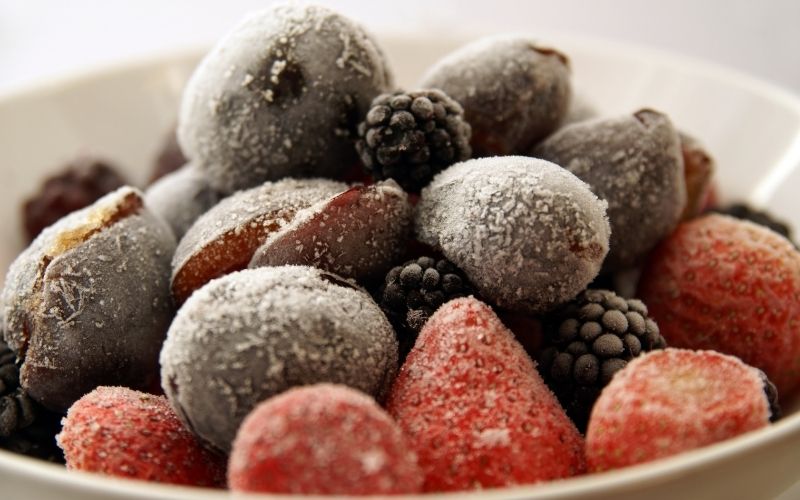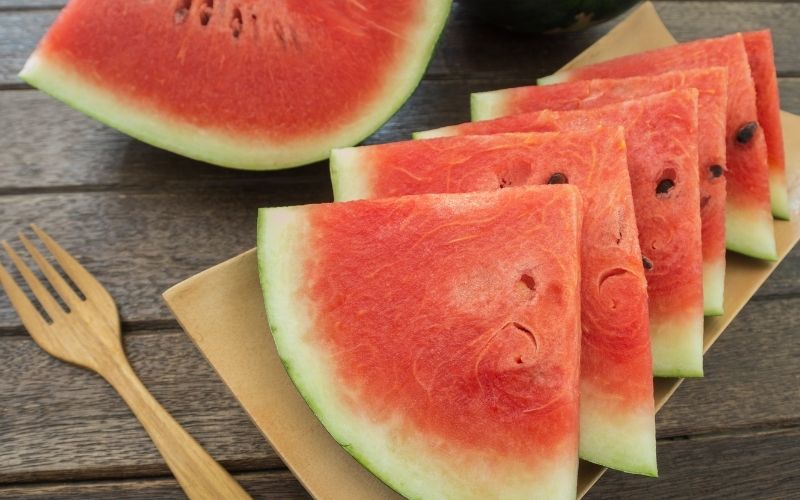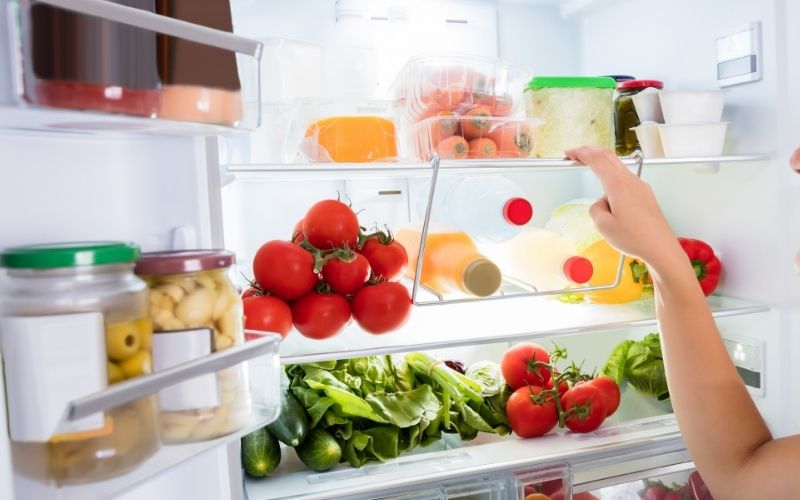How To Keep Fresh Fruit Longer: Clever Ways To Try In Your Kitchen!

It's always frustrating when you buy fruit, and it doesn't go nice before you can eat it all. No one wants good fruit to go to waste! If you find yourself asking, how do you keep fruit fresh longer? There are several ways to do this, including a few of our suggestions below. We will walk you through a few whipsmart ways to keep fresh fruit longer for an efficient and organized kitchen.
Utilize Your Kitchen Zones Wisely
Step 1: Consider a Fruit Basket on Your Countertop or Kitchen Island

Some fruits that should be ripe on the counter include apricots, avocados, guava, kiwi, melons, nectarines, papaya, peaches, bananas, and plums. Using a fruit basket or even a hanging fruit basket can help regulate the airflow while storing fruit without taking limited counter space.
In your kitchen, a bounty of fresh produce like stone fruit, specifically mangoes and other citrus fruits, can be a good and bad thing if you don't know how to store it. Ensure to preserve them by ripening in an open-air container like a fruit basket. This will enable a natural transfer of their juicy goodness into the fridge once they're soft.
Many people think it's a good idea to eat fruit when it is first ripening, but don't forget about all those other things you could do with the overripe ones. For instance, make jam! You can never go wrong with jam!
Step 2: Make Use of the Freezer as much as Possible

One of the best ways to store fruit is by freezing it. You can use frozen ripe or unripe berries in smoothies, and cereal toppings, about a week with this simple storage tip. There are many ways to savor and make the most out of fresh fruit all year long.
You can freeze berries and other fruits, drink them in the form of smoothies or hot cereal with yogurt; make sure you use up your frozen goodies before they become too caloric for healthy living!
Fruits may be frozen to keep them fresh longer while preserving their nutritional value, resulting in less waste for anyone who enjoys eating healthy but is also on a budget. This will also reduce the number of visits to the grocery store during the week!
Step 3: Set Aside Fruits That Speed Up the Ripening Process for Other Fruits

Not many people are aware that some fruits have the power to trigger a quicker ripening process when stored with other fruits. Apples make other fruits and vegetables ripen faster. If possible, keep them in a separate place from your fridge to prolong their life span!
Dos and Don'ts Of Fruit Storage
Do: Be berry mindful.
While freezing berries like strawberries, blueberries, raspberries, and blackberries can help prolong their life span, specific rules need to be followed. How long the berries will last when they're in a freezer depends on how well you've cleaned them and whether or not they were adequately prepared for freezing.
Vinegar

A great tip for storing berries is mixing them with vinegar and letting it all hang out until everything is dry. You'll never need to worry about getting sick again when you eat these delicious treats because the acidity on their surface will keep harmful bacteria and mold spores at bay.
Cookie Sheet
Separating berries on a cookie sheet works well for freezer storage. Gently wash the berries with water and drain. When spreading them in a single layer on your cookie sheet, don't hesitate to create proper airflow. Carefully transfer into labeled freezer bags or reusable silicone containers as they become hard.
Don't: Put apples and bananas in one spot.
An excellent way to store apples and bananas is by keeping them away from each other because the ethylene gas that they emit will speed up the ripening process, so it's better if you separate these fruits at all times.
Do: Infuse avocados in lemon juice.

Avocados are very delicious yields and can be savored in many ways besides preparing so much avocado toast in the morning. One way to enjoy it is by storing the avocado halves with lemon or lime juice.
This method will prevent browning due to enzymes within its skin caused when exposed oxygen molecules break down this pigment causing them to turn colorized quicker than regular produce like apples.
You could also store your avo on top of some onions (you don't want any flavor from them) because they act as another layer between you and those pesky radicals that cause spoilage before their time. Ensure you don't forget about cleaning off both sides after each use -sounds excessive, but lavender oil works wonders too!
Don't: Cut lemons in half.
To avoid drying out the whole lemon, puncture it with a fork instead of cutting. Squeezing just what we need without compromising flavor will make our drinks and recipes much more refreshing! This method will help you avoid your lemons from becoming completely dry before you have a chance to use them for dinner prep.
Do: Go big with watermelon slices.

The best way to store your favorite melons is by cutting them into large slices and then wrapping them in plastic wrap before placing them in the fridge. It's essential not only for keeping watermelons and melons juicy and fresh but also so that they don't spoil!
Don't: Store bananas on the counter.
The best place to store bananas is in the fridge because it will make them last longer, but if you want them on your countertop instead of in a fruit basket or bowl, then at least separate each one by keeping some distance between every piece.
Do: Separate fruits from veggies.

Many overlook the need to separate apples from onions or oranges from tomatoes, but if you do this, things like bacteria and mold will start to grow on your fruits. You'll also want to make sure that any product is dried well before it's put into a bag or box, so the moisture doesn't encourage these harmful spores from growing out of control.
Fruits are fruits for the most part, but a few will only get worse if left out with other vegetables. Remember that avocados and tomatoes should be refrigerated while different ripening varieties can stay at room temperature with some care.
Don't: Remove all fruits from their packaging.
Storing fruit in the fridge is good, but most fresh fruits, including apples and berries, will last longer if kept at their original packaging. Stored correctly with an additional layer of protection on top (the crisper), you can keep your produce fresher for more days!
Do: Soak apple slices in saltwater.

Apples are great to snack on or mix into your favorite salads, but storing them can be a pain if you constantly enjoy them in cut edges. Soak slices in salt water for five minutes before drying for long-term storage.
Refrigerate them in airtight containers or reusable silicone bags full of leftovers, so they don't brown! You won't even notice any difference with this apple because it doesn't turn an unpleasant shade as other fruit, which will do so after being exposed to too much sunlight.
Practice Smart Meal-Prepping
Avoid Washing Fruits and Veggies Right Away

Meal preppers are guilty of constantly preparing ingredients ahead of time. This often leads to over-ripened fruits and veggies for the salad, which then incurs food waste, which this whole tutorial is trying to avoid. As much as possible, vegetables and fruits must be washed just before they're prepared.
Fruits can last longer than expected if kept in the right conditions because of ethylene gas. If you've ever bought a fresh-cut pineapple that was already ripe, then you probably know what we mean by this. Ethylene is a natural plant hormone that will continue to ripen when left chopped in pieces for an extended period before service.
Ethylene Producers or Consumers?
Apples, bananas, and melons are all good at producing this gas that causes ripening in other fruits like tomatoes! If a plant doesn't have enough of its favorite hormone, it won't get any bigger from its seeds. In other cases, overripe fruit will continue to produce ethylene and affect the quality of your fruits.
Cut Wisely and Use the Eco-Friendly Tools

Protect your fruit and vegetables by using a reusable food cover. You'll be doing yourself (and the planet) a favor when you choose this option over cling film or another plastic wrap because it's better for our environment!
As easy as it is to keep your chopped-up salad ingredients on a plate with a cling wrapper, it's not the most eco-friendly option out there. Choose an elastic food storage cover to give your sliced fruit an airtight seal. A tight seal will prevent your fruit from getting dehydrated and wilted.
Conclusion
Fruits are healthy must-haves in everyone's kitchens. How to keep fruit fresh longer in your kitchen doesn't have to be a doozy! By implementing some of our suggestions, you'll be able to prolong the shelf-life and quality of your favorite fruits. Whether it's for snacking, salad prep, or for your breakfast smoothie or oatmeal, how to keep fresh fruit longer in your kitchen is achievable!
